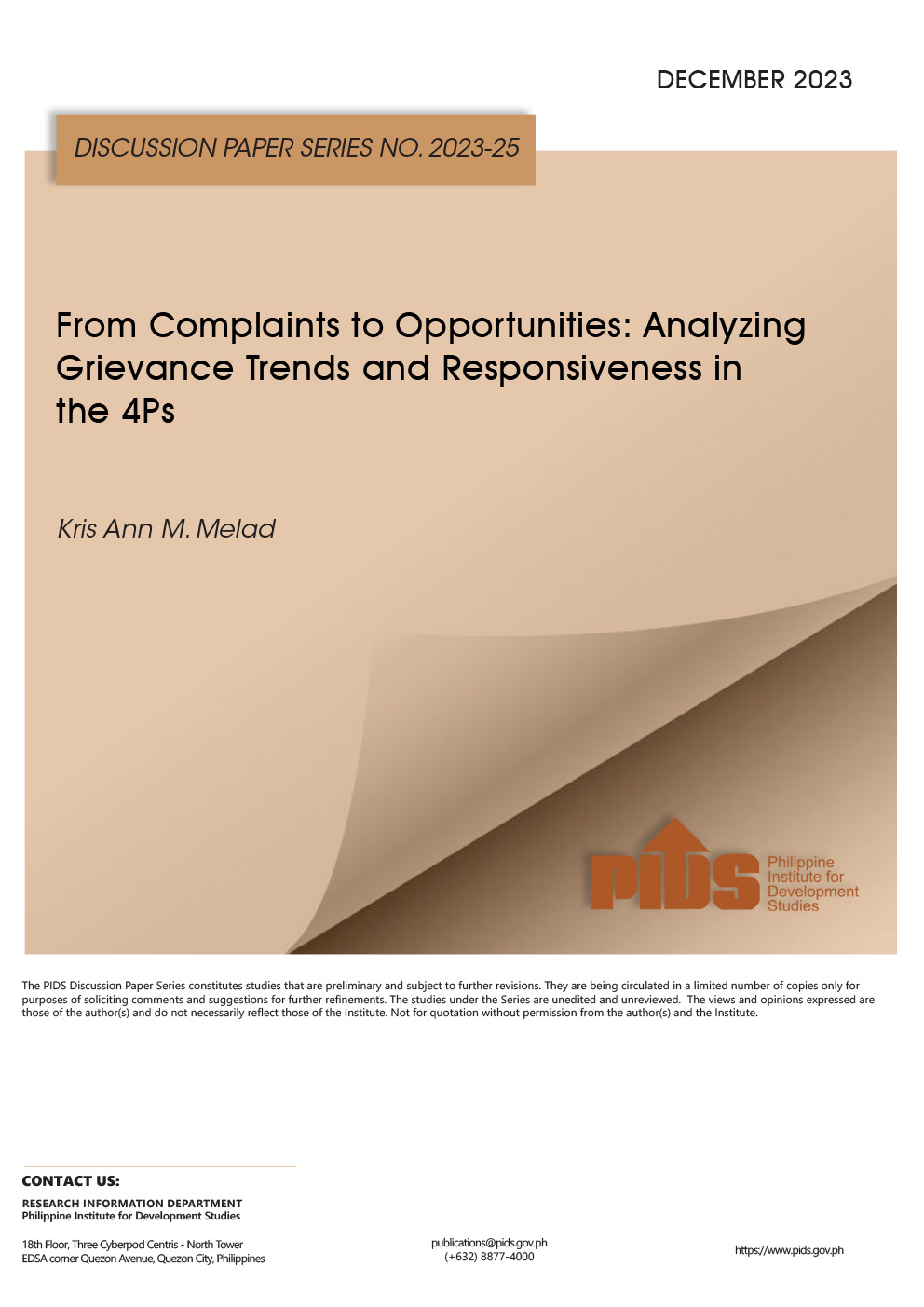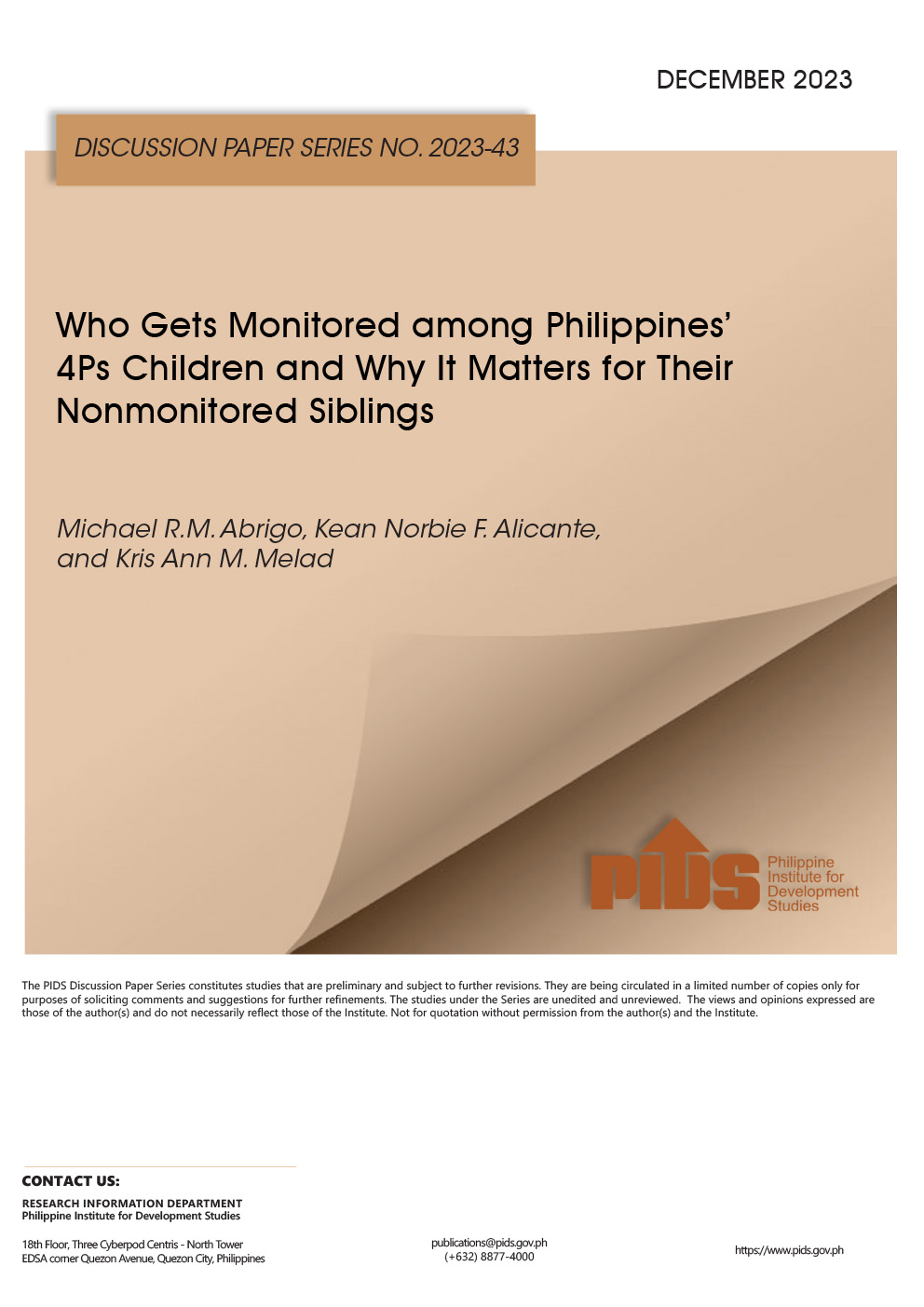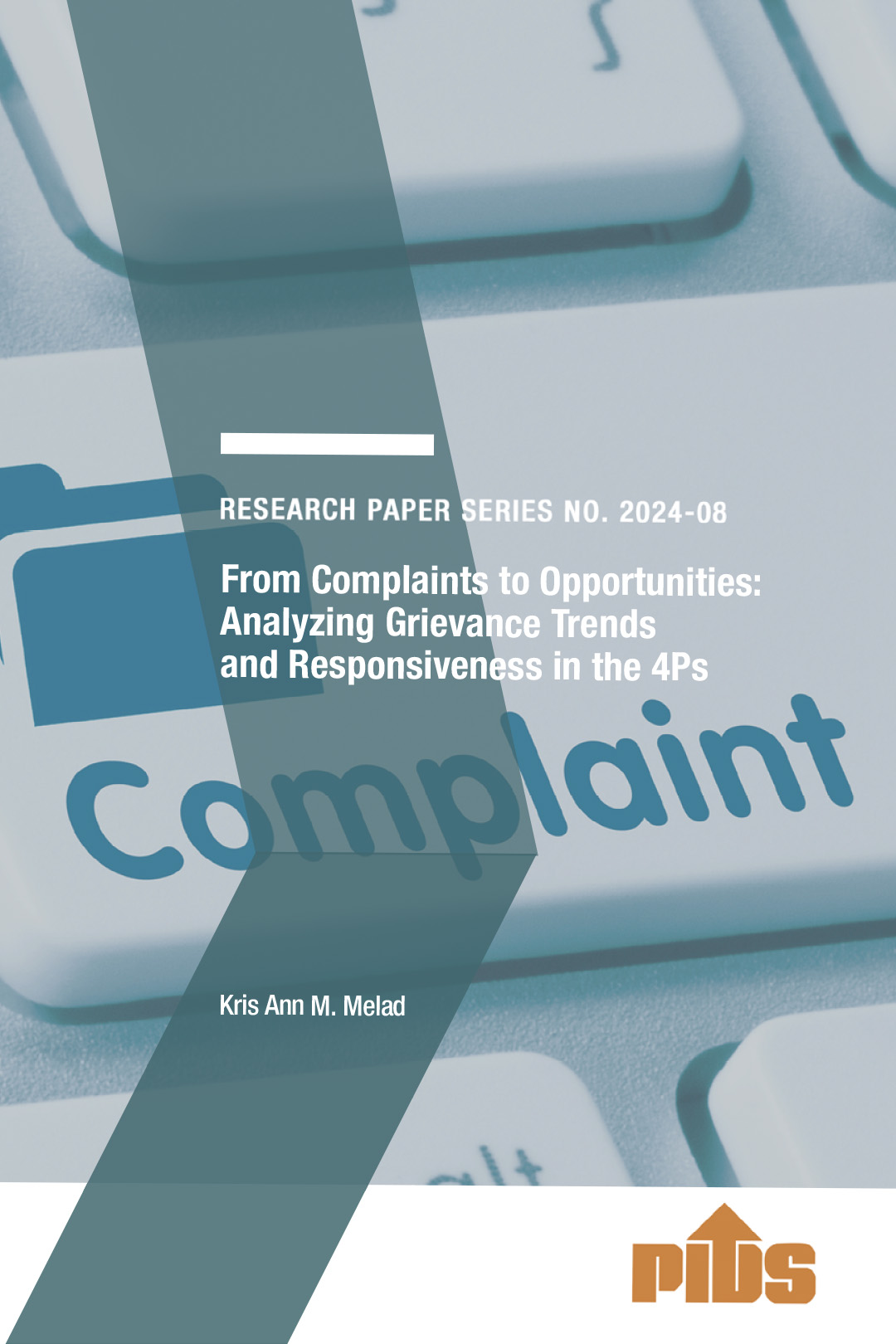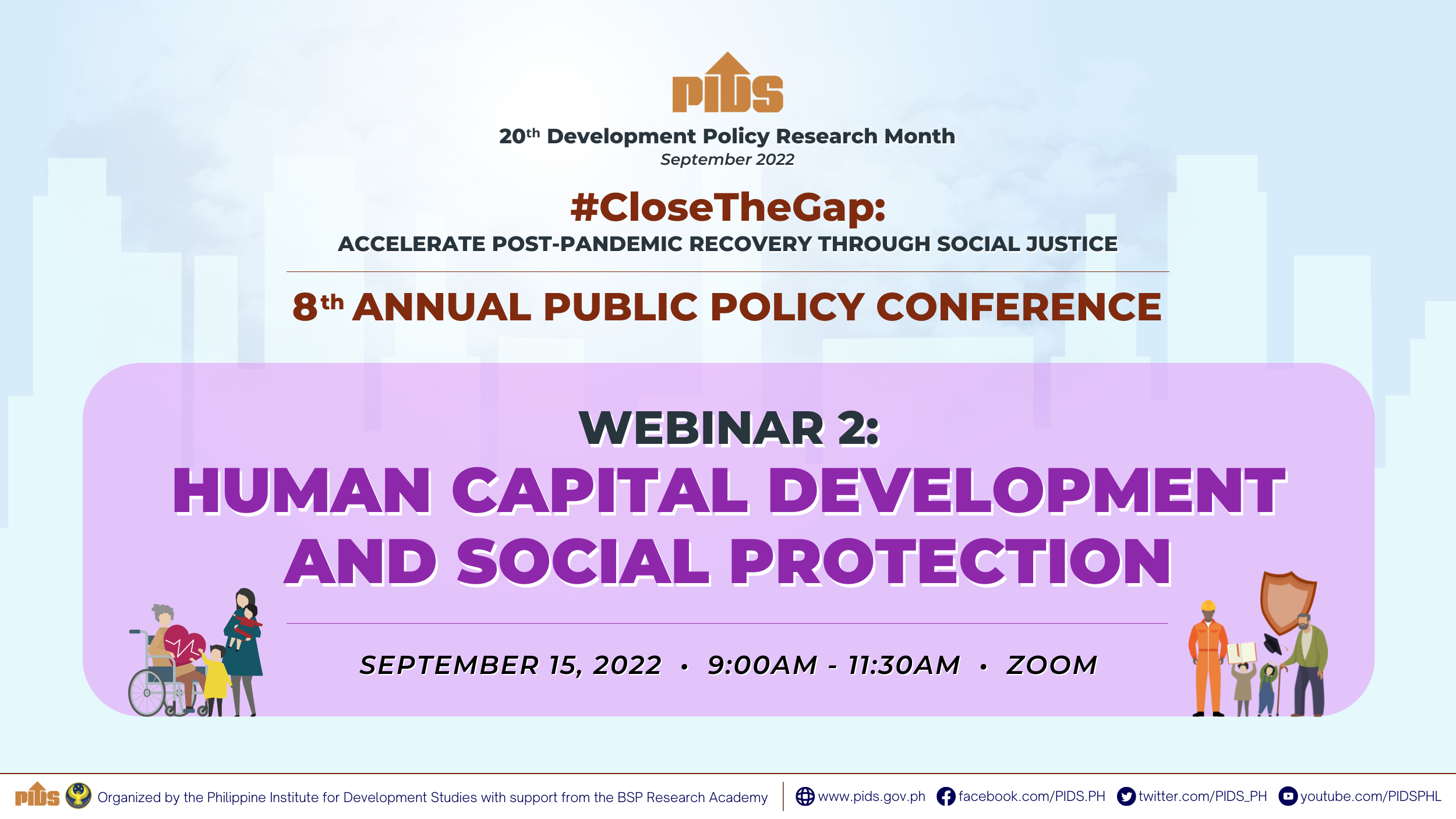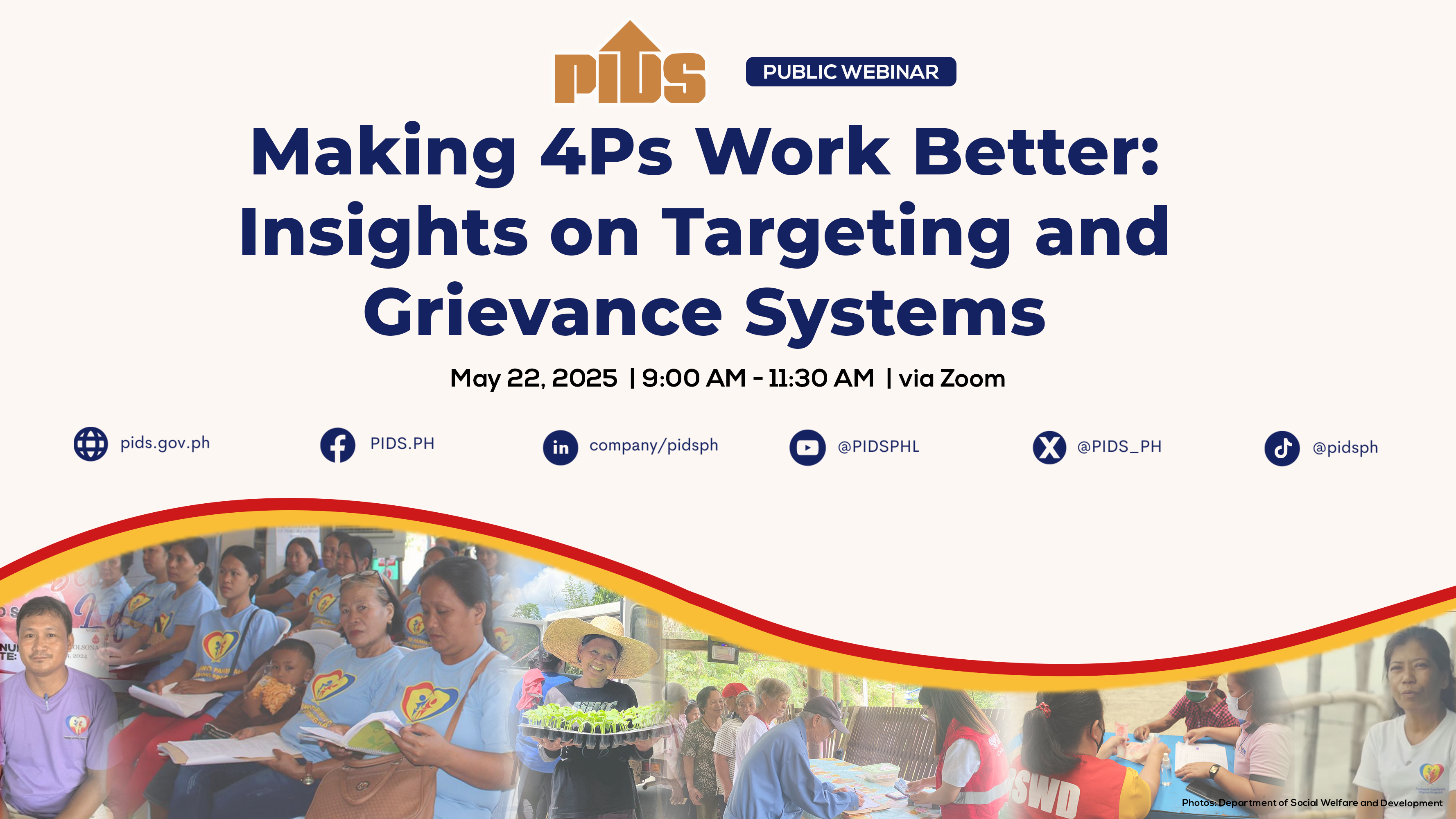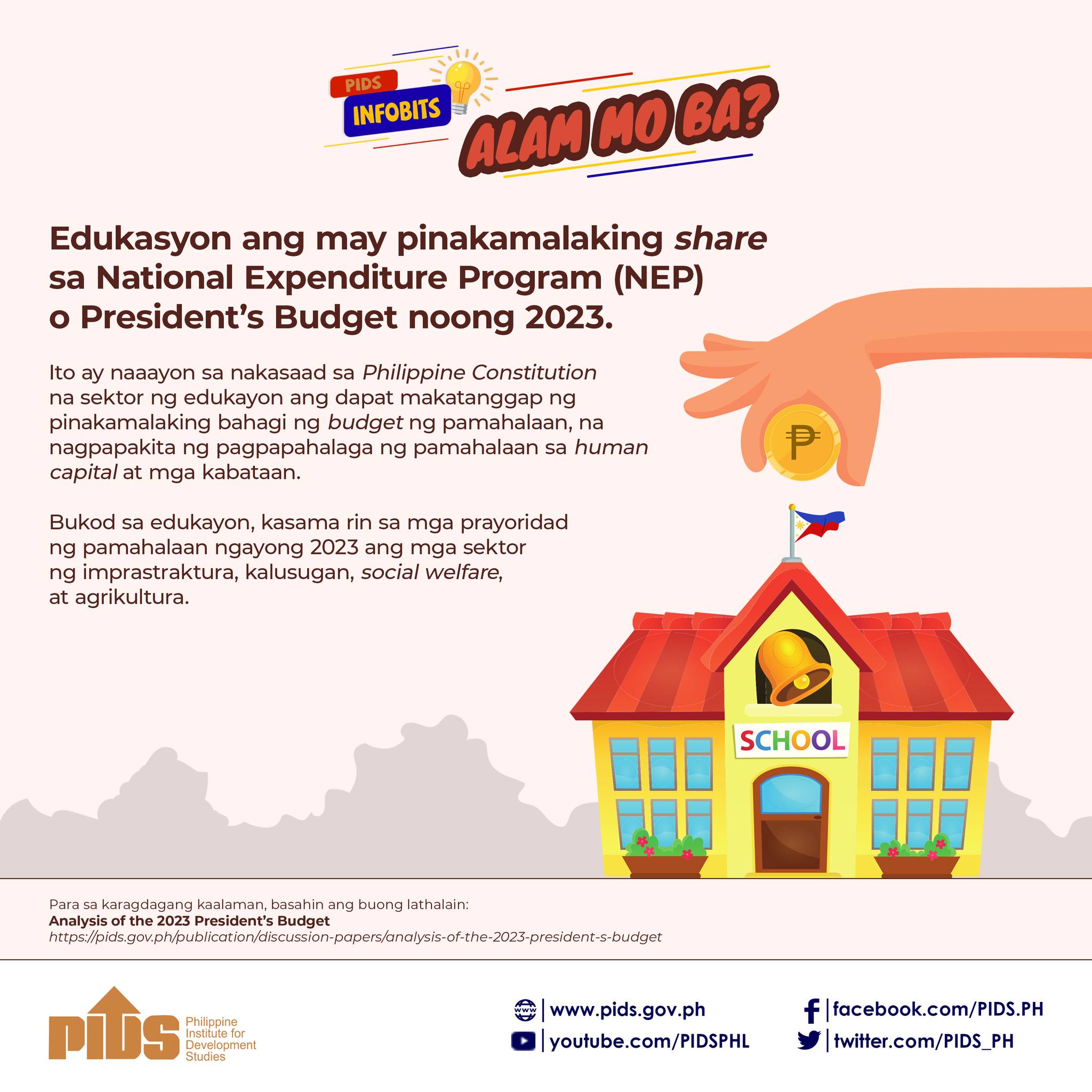
In a recent webinar hosted by the Philippine Institute for Development Studies (PIDS), experts emphasized the importance of convergence among different agencies and local government units (LGUs) to ensure the effectiveness of the Pantawid Pamilyang Pilipino Program (4Ps).
The webinar featured two PIDS studies co-authored and presented by PIDS Senior Research Fellow Michael R.M. Abrigo. Titled “Conditional Cash Transfers in Resource-poor Environments: Evidence from the Philippine 4Ps” and “Who Gets Monitored among Philippines’ 4Ps Children and Why It Matters for Their Nonmonitored Siblings”, these studies reveal the influence of supply-side limitations and program monitoring on 4Ps outcomes. Reacting to these findings, experts underscored the importance of collaboration for program success, particularly in the health and education of poor Filipino households.
Augustus Lito Narag, Chief of the 4Ps Grievance Redress Division, recognized compliance challenges within the program. “Some beneficiaries struggle to meet program conditions, like attending school and going to health centers, due to factors like age appropriateness for grade level, distance to facilities, and limited service capacity,” he said.
However, while the programs enhance the utilization of social case management to address beneficiary non-compliance, he stressed that their effectiveness hinges upon complementary interventions from external stakeholders. He specifically mentioned collaboration with LGUs and data system integration across agencies like the Department of Education to streamline monitoring and reduce administrative burdens.
Further emphasizing the importance of collaboration, Hon. Kate Galang-Coseteng, representing the National Executive Board of the Union of Local Authorities of the Philippines (ULAP), highlighted the LGUs’ pivotal role in enhancing services for the beneficiaries. She provided concrete examples from Quezon City, such as offering free transportation to schools and clinics, regular medical missions, and outreach programs. These initiatives demonstrate how issues of insufficient medical supplies and manpower in certain areas can be addressed.
“LGUs have a big potential to be true partners in the implementation of 4Ps, fostering greater community understanding and long-term success. They could become champions for the program within communities, ensuring its holistic and sustainable impact,” Hon. Galang-Coseteng stated.
On the other hand, Ms. Jeana Catacio, former 4Ps beneficiary and Samahan ng Nagkakaisang Pamilya ng Pantawid Spokesperson, stressed that while LGUs can significantly enhance service delivery, a smooth transition plan for graduating beneficiaries is also crucial for long-term success. She mentioned about how the 7-year maximum duration mandated by the 4Ps Law can leave beneficiaries vulnerable upon exiting the program.
“We have witnessed firsthand how 4Ps has improved the lives of many families even before the pandemic. The program’s emphasis on education and health as conditions for assistance clearly demonstrates its commitment to beneficiaries’ long-term well-being,” she said. However, she cautioned that achieving the program’s full potential also depends on effective collaboration between all stakeholders, including current beneficiaries and those graduating households transitioning out of the program.
Watch the recording of the webinar here: bit.ly/pidslive042524. ###

